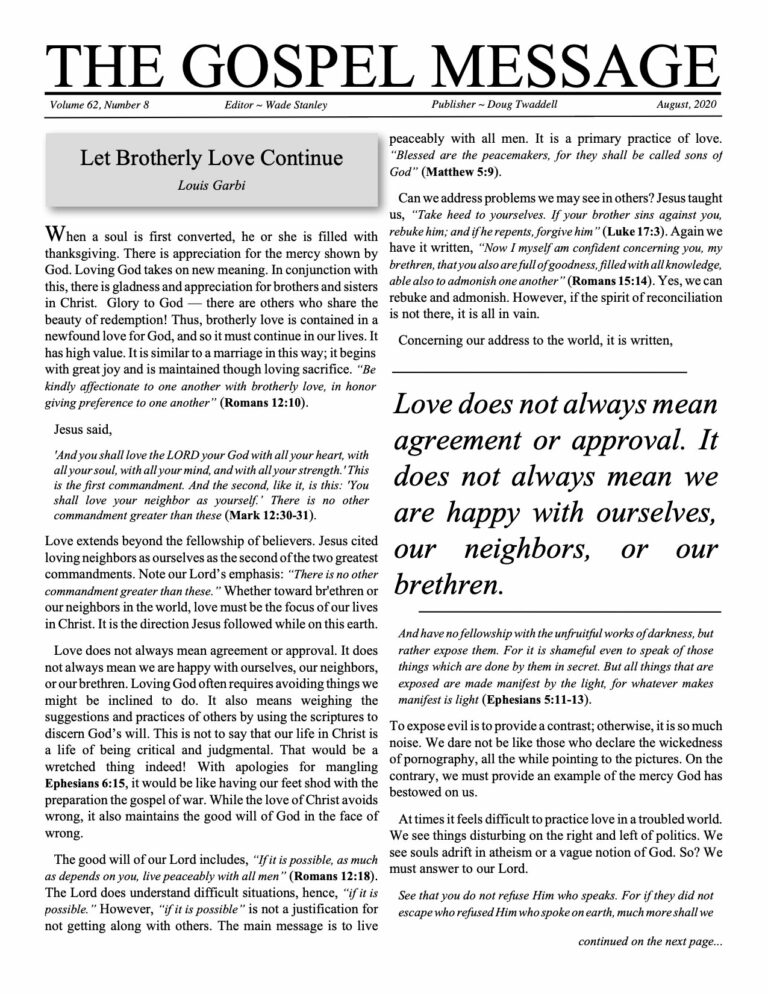Let Brotherly Love Continue
Brotherly love and loving our neighbor as ourselves seem close, almost the same. There is a distinction, in that brotherly love is a direct result of salvation. It comes from our being a part of God’s family, “the Beloved” (Ephesians 1:6). We have a shared identity and appreciation. Whereas loving our neighbor is the ministry of Christ to a world in need: “Love does no harm to a neighbor; therefore love is the fulfillment of the law” (Romans 13:10). For the sake of all, love means appreciating others for the goodness they possess, or the potential for goodness which everyone has. It means trying to understand others – to see their point of view, then to act accordingly. We must leave the condemnation of others to God. It is not our place. In light of the ministry of Jesus, we can say that even Jesus sustains the hope of reconciliation to all without condemnation. Don’t you think His intent was on what we could become (our potential) rather than what we were? Didn’t that make our salvation possible? “For God did not send His Son into the world to condemn the world, but that the world through Him might be saved” (John 3:17). “And if anyone hears My words and does not believe, I do not judge him; for I did not come to judge the world but to save the world” (John 12:47).

